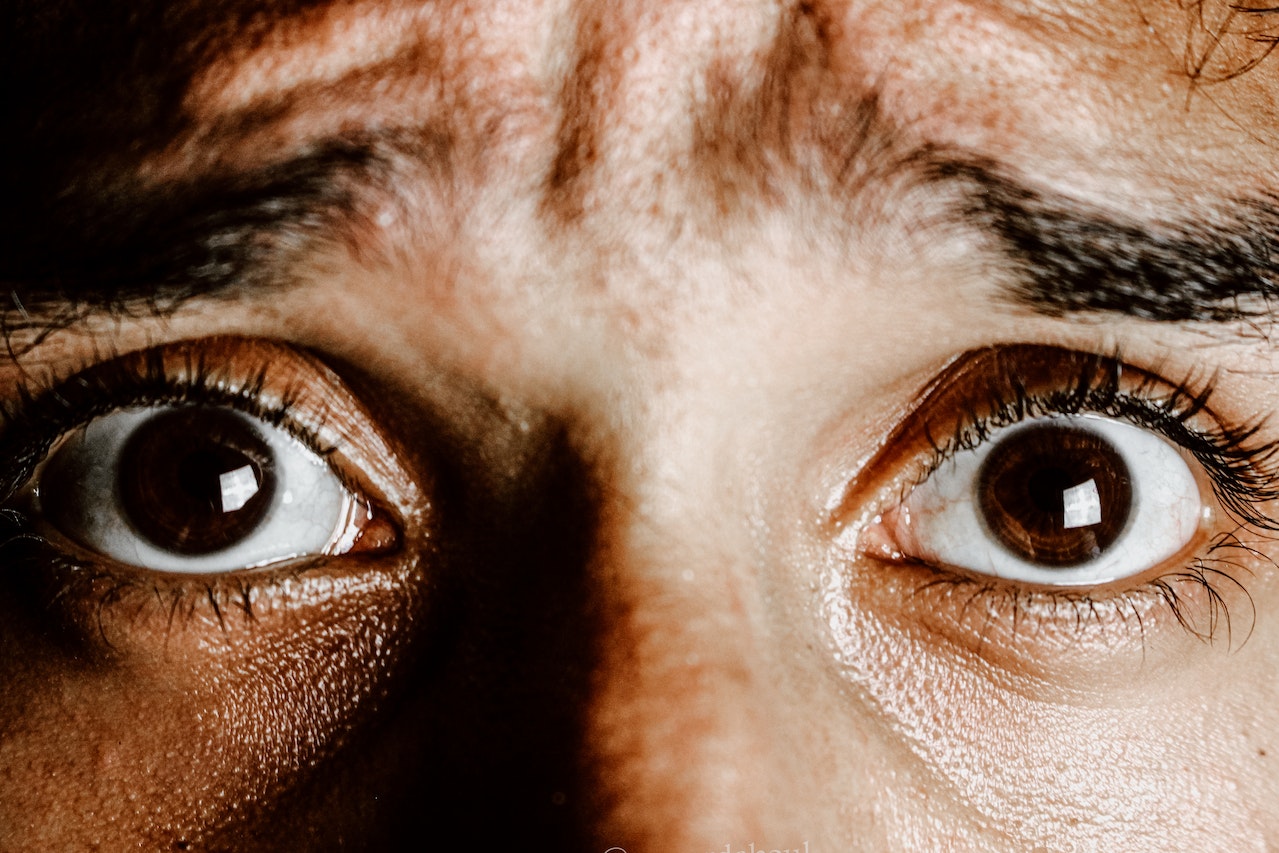What Is A Panic Attack And How To Overcome It
Modern society, living in a highly active and demanding environment, is subjected to numerous stresses on a daily basis.
Author:Kelly HayesReviewer:Aurora SmithDec 15, 2022166 Shares2.6K Views

Modern society, living in a highly active and demanding environment, is subjected to numerous stresses on a daily basis. Every day we have to make decisions, be in the middle of events, and react quickly to changing conditions. Sometimes a person is involved in or witnesses an emergency situation, faces heavy emotional distress, grief, loss, divorce, etc. All this undoubtedly provokes internal tension, fear and anxiety in response to a stressful situation. The information one gets daily from TV, newspapers, games at a casino NZ, magazines and radio shows also plays a big part in the increase of emotional tension. A large amount of emotionally charged newsabout certain events associated with tragedy and deprivation can sometimes exacerbate the already difficult emotional state of the person. Often, the consequence of such stress loads is the occurrence of panic attacks, which block a person and prevent him or her from living and functioning fully.
What is a panic attack? What are its manifestations? How does the life of a person under the power of panic attacks change? What role dofamily and loved ones play in maintaining the problem? What methods of psychological work are effective in dealing with this problem?
What Is a Panic Attack
Panic attack is an unexplained, excruciating for the person, an attack of severe anxiety, accompanied by fear, combined with various vegetative (somatic) symptoms:
- Heart palpitations, rapid pulse.
- Sweating.
- Chills, tremors, feeling of inner trembling.
- Feeling of shortness of breath, shortness of breath.
- Shortness of breath or difficulty in breathing.
- Pain or discomfort in the left side of the chest.
- Nausea or abdominal discomfort.
- Feeling dizzy, unsteady, light-headed, or fainting.
- Fear of going crazy or committing an uncontrollable act.
- Fear of death.
- Feeling of numbness or tingling in the extremities.
There are other symptoms not included in the list: abdominal pain, loose stool, rapid urination, lumpy throat, gait disturbance, visual or hearing impairment, hand or leg cramps, impaired motor function.
Almost everyone at least once in their life has experienced a feeling of inexplicable fear and anxiety, accompanied by an increased heart rate and trembling in the knees. This is how our body is accustomed to reacting to an existing danger or threat. And the degree of reaction can vary from person to person. Some people experience mild anxiety, while others experience intense fear, panic and horror. These conditions, if regularly repeated, represent a serious problem, which experts call panic attacks. The cause of this condition can be not only stress, but also various psychological conflicts that a person can not resolve for various reasons.
What Role Does the Family and Loved Ones Play in Maintaining the Problem
On the one hand, PA turns a person into an important person. The whole family rallies around him. They adjust to him, take care of him, try to please and relieve him, and he is the center of attention. And on the other hand, the person falls into a "trap" that forces him or her to receive love and care from loved ones as long as possible, while remaining a sick person for them, who needs to be protected, loved and cared for. And here we are talking about the secondary benefit of the problem. They are forgiven everything and do not expect much, they are relieved of any responsibilities, the level of demands is reduced, they are saved from stress and physical strain.
In this case, the hyperprotective attitude of relatives creates conditions for the person to shift responsibility to relatives and doctors rather than to make every effort in the struggle for his or her recovery. This attitude of the family makes it difficult for the person to recover and actively return to a healthy life. Only by realizing the benefits of PA and giving it up can one get rid of its manifestations and influence.
The emergence or aggravation of PA can be traced to people who find themselves in situations involving real or perceived threats to their lives. The helpline receives calls more often from citizens who are in the throes of an attack, especially after receiving information about terrorist attacks, plane crashes, after the deaths of loved ones, etc.
Panic attack syndrome occurs in people with a weak stress defense system. Such people maintain psycho-emotional equilibrium up to a certain point, but when problems reach their peak, panic attacks come upon them like the snow on their heads.
How the Life of a Person Under the Power of PA Changes
Panic attacks can lead to psychological and social consequences. Having experienced an attack, a person may begin to fear the occurrence of repeated attacks, inwardly begins to wait for them. This often has a direct effect on his life in general. Such a person, as a rule, tries to limit his/her movements, tries to be alone as seldom as possible, and avoids noisy public places. Such people try to avoid any situations that can provoke a panic attack. Often he stops taking public transportation and tries not to go far from his house. In the case that there is still a need to go somewhere, this person asks to accompany him, he will never leave the house alone. Such a person listens to his feelings all the time, trying to control everything that is going on inside. And this control further provokes the occurrence of panic attacks. Lingering panic attacks are sometimes complicated by depression, loss of interest in life, a sense of hopelessness and as a consequence, can cause a person to lose the ability to work and complications in family and personal life.
How to Help Yourself if a PA Has Begun
During the attack, a person is covered by fear of death, or fear of going crazy and committing uncontrollable actions and deeds. The body responds to the panic with stress symptoms, including rapid heartbeat and breathing, blood rush, weakness, and dizziness.
The person begins to listen to his inner feelings. And he who seeks, finds. And the more a person finds signs of unhealthiness in his body (tachycardia, shortness of breath, trembling in the body and muscle tension, etc.), the worse he begins to feel physically. The more the fear grows. A vicious circle arises. What to do?
To begin with, you should try to calm down and focus your control on stopping the panic attack. Perhaps the idea that no one dies from a panic attack will help you pull yourself together and begin to actively help yourself.
Pay attention to your breathing. In a situation of stress, panic breathing becomes shallow, short shallow, frequent, which leads to hyperventilation of the lungs. Even this alone can provoke a panic. Therefore, take your breath under control. Breathing is regulated by the nervous system and, with a certain cycle of breaths and exhalations, can control it. According to physiologists, the breath is associated with excitation of the nervous system, and the exhalation - with its inhibition, so if you shorten the breath and lengthen the exhalation, you can achieve a calming effect. Calming breathing consists of a relative shortening of the breath, lengthening of the exhalation and pause after it. In practice, the exhalation is lengthened until it becomes twice as long as the inhalation, and then the duration of the pause lengthens. It usually takes half of an inhalation.
In these formulas, the first number means the duration of the inhalation, the second number means the duration of the exhalation, and the third number means the breath retention after the exhalation. Such breathing will help to quickly restore the emotional state when stressed or during a panic. For this purpose, abdominal breathing is recommended, pay attention to how your belly inflates during the inhalation and how it retracts during the exhalation. Breathing can be combined with rhythmic leisurely walking. In the beginning, stick to the rhythm - two steps inhale, two steps exhale. Then increase the duration of the exhalation - two steps in, three steps out.
Concentrating on bodily sensations and unpleasant thoughts, you only aggravate a panic attack. There are several techniques that help distract the mind from panic feelings. You may already know some of them:
- Rubber band method. Wear a rubber band around your wrist. When you feel a panic attack approaching, pull it away, and let it flick you on the arm with enough force. A sharp painful sensation will divert attention from the approaching symptoms and give time to apply other techniques to control the fear, such as slow breathing. And sometimes the sensation itself is enough to stop the attack.
- Counting. Some people find it useful to distract themselves from the impending attack if they begin to count some objects. For example, how many red cars have passed by, or how many buttons are on the clothes of the person next to them. As a last resort, you can always just multiply the numbers in your mind. This method offers many possibilities.
- "Reverse." Try to read the thought that scares you backwards, repeat this procedure exactly 10 times if necessary.
Talk to a stranger, ask him or her to tell you how to get to the nearest bus stop or subway station. The main thing is to concentrate on the other task.
You can make a special notebook in which you will write down information during the attack: time, place where you are, who and what surrounds you, the situation in which you are, thoughts and feelings that arise, your reaction in this case).
To cope with panic attacks more easily, it is necessary to learn how to relax. To do this, you can learn any method of relaxation, for example, Jacobson's progressive muscle relaxation. When you learn how to quickly relieve muscle tension, you can easily reduce anxiety. The fact is that anxiety and relaxation are directly opposite states, they cannot be simultaneously, so relaxing muscles in situations that cause tension allows you to reduce anxiety, get rid of negative feelings, perceive stressful situations more easily and prevent panic attacks.
The main thing isn't to run away from the situation: next time a panic will be more difficult to survive. If the attack caught you in the mall or the subway then, having coped with it, continue to do what you were doing, even if you just strolled leisurely. Give in to the desire to escape, you run the risk of fixing your fear of the place, and subsequently returning there will be very difficult for you. Reward yourself for this victory with something, or at least praise yourself for doing the right and wise thing.
What Methods Are Effective in Solving This Problem
Often patients, their relatives, and sometimes doctors believe that panic disorder isn't worth treating, and should "just pick yourself up." This is the wrong approach. It's necessary to treat, and the earlier treatment begins, the faster the normalization of the condition can be achieved. Panic disorder is well treated. Before going to the doctor, it's possible to independently use some psychological techniques aimed at reducing the level of anxiety. But to get rid of panic attacks, to restore a normal way of life, to learn to overcome various stressful situations calmly in the future, it's necessary to consult a therapist.
In the majority of cases, the most effective is the combined use of medication and psychotherapy. Among the psychotherapy methods used in treating panic disorder, psychological relaxation techniques, behavioral and cognitive-behavioral therapy, short-term strategic therapy method, Eriksonian hypnosis and other suggestion methods have already proven effective. These forms of therapy seek to help people with panic disorder identify and reduce the doomed thoughts and actions that exacerbate panic symptoms. Behavioral techniques often used to reduce anxiety include relaxation and gradually increasing the patient's exposure to panic situations that may have previously caused anxiety. Helping the patient understand the emotional problems that may have contributed to the symptoms is called psychodynamic psychotherapy, which has also been found to be effective. Often, a combination of psychotherapy and medication yields good results. The choice of psychotherapy method depends on many variables (patient characteristics; causes, nature of course and duration of panic disorder; presence of comorbidities). Studies show that psychotherapy alone or a combination of medication and psychotherapy is more effective than medication alone in overcoming panic attacks.

Kelly Hayes
Author
Kelly Hayes is a versatile writer specializing in delivering insightful content across global and local news from Mississippi, as well as psychics, horoscope, and numerology for beginners.
With a background in journalism and a commitment to accuracy, Kelly's articles offer readers a comprehensive understanding of current events alongside spiritual insights. She seamlessly blends investigative rigor with esoteric knowledge, empowering readers to navigate both the material and spiritual dimensions of life.
When not immersed in her writing, Kelly enjoys exploring new topics, honing her craft, and fostering connections with her readers.

Aurora Smith
Reviewer
Aurora Smith is a dedicated writer with a profound interest in the mystical and esoteric. Through her articles on psychic phenomena, tarot, and magic, Aurora seeks to unravel the secrets of the universe and empower readers on their spiritual journey.
With a background in metaphysical studies and a passion for ancient wisdom traditions, Aurora provides thoughtful interpretations and practical advice to those seeking guidance in navigating the unseen realms.
Beyond her writing, Aurora enjoys exploring nature, practicing yoga, and delving into the mysteries of the human mind.
Latest Articles
Popular Articles